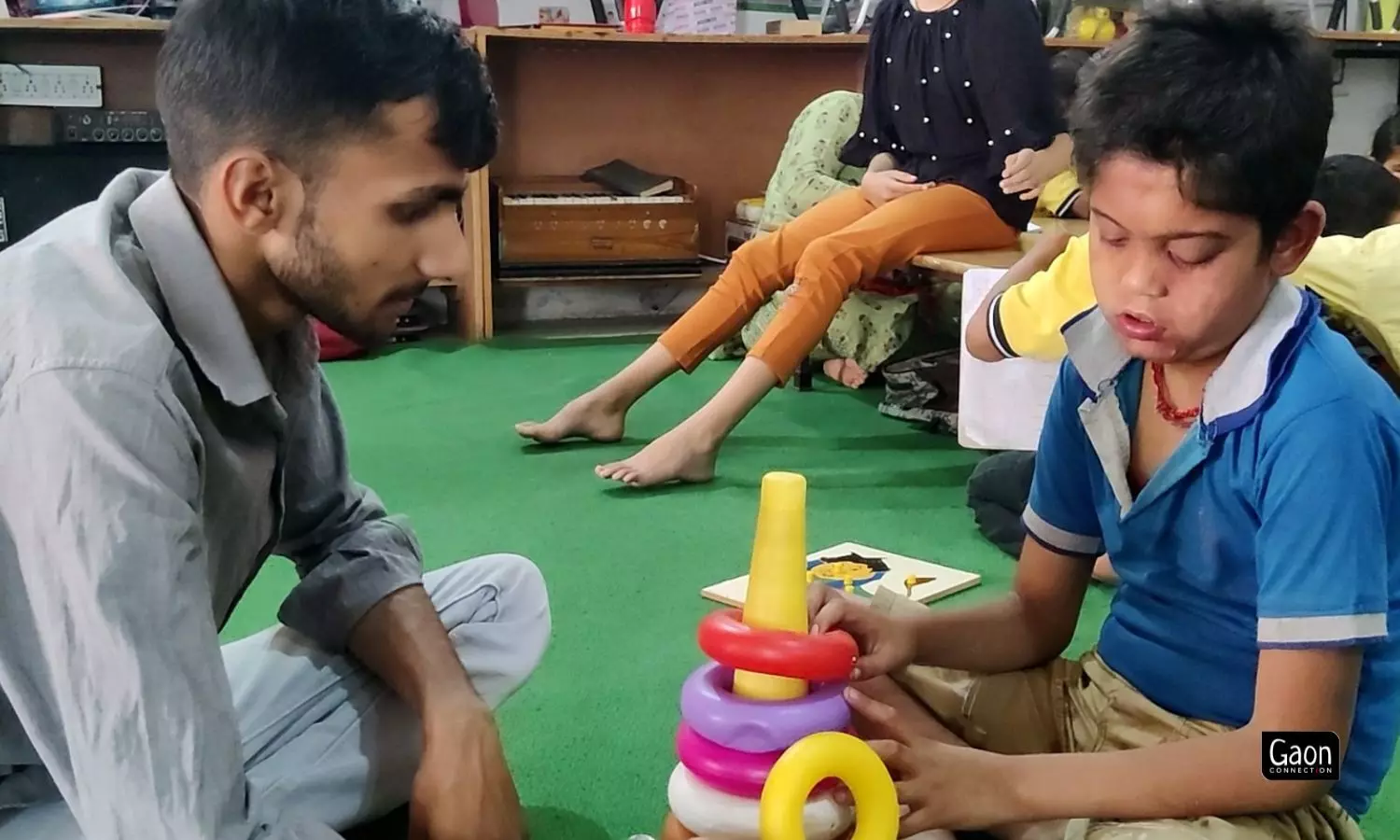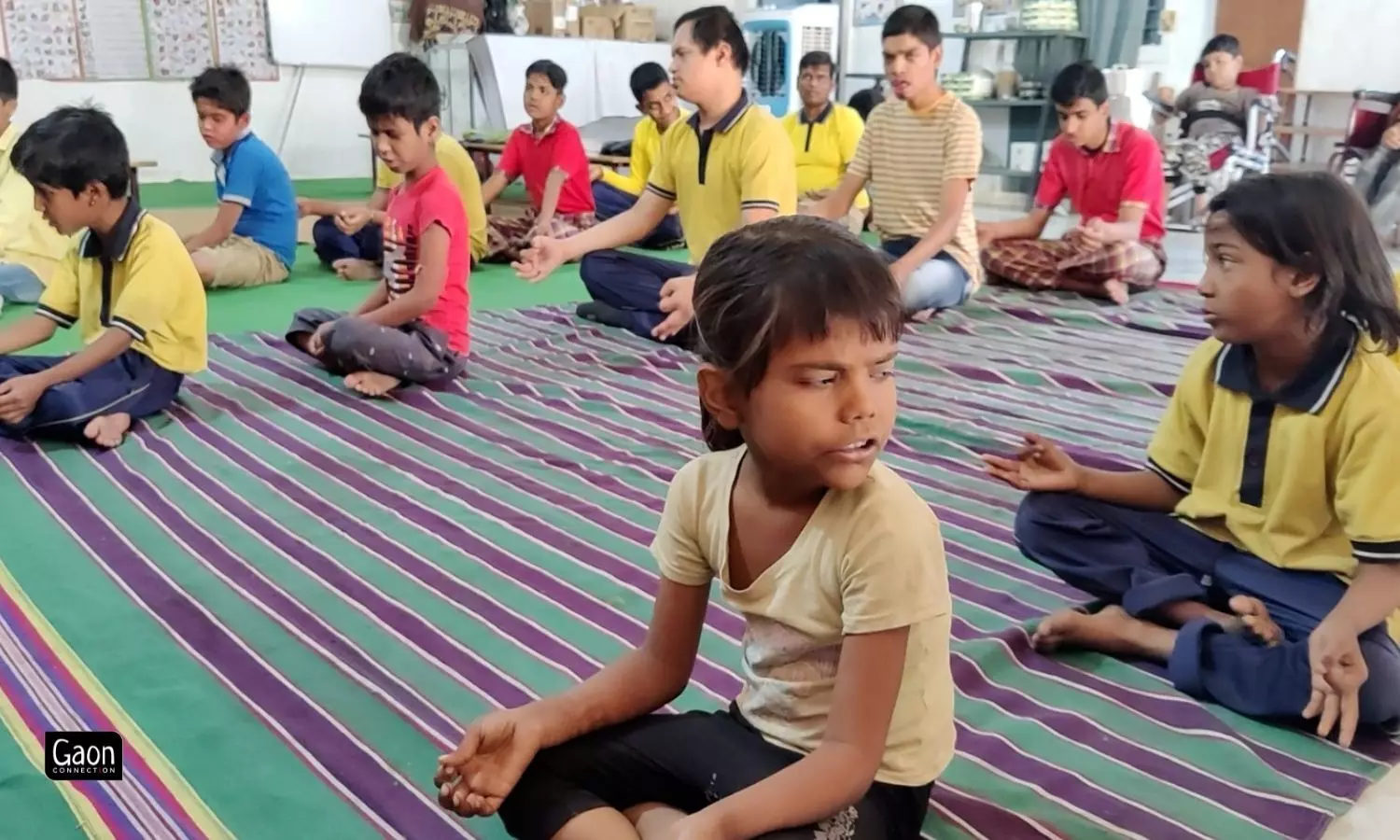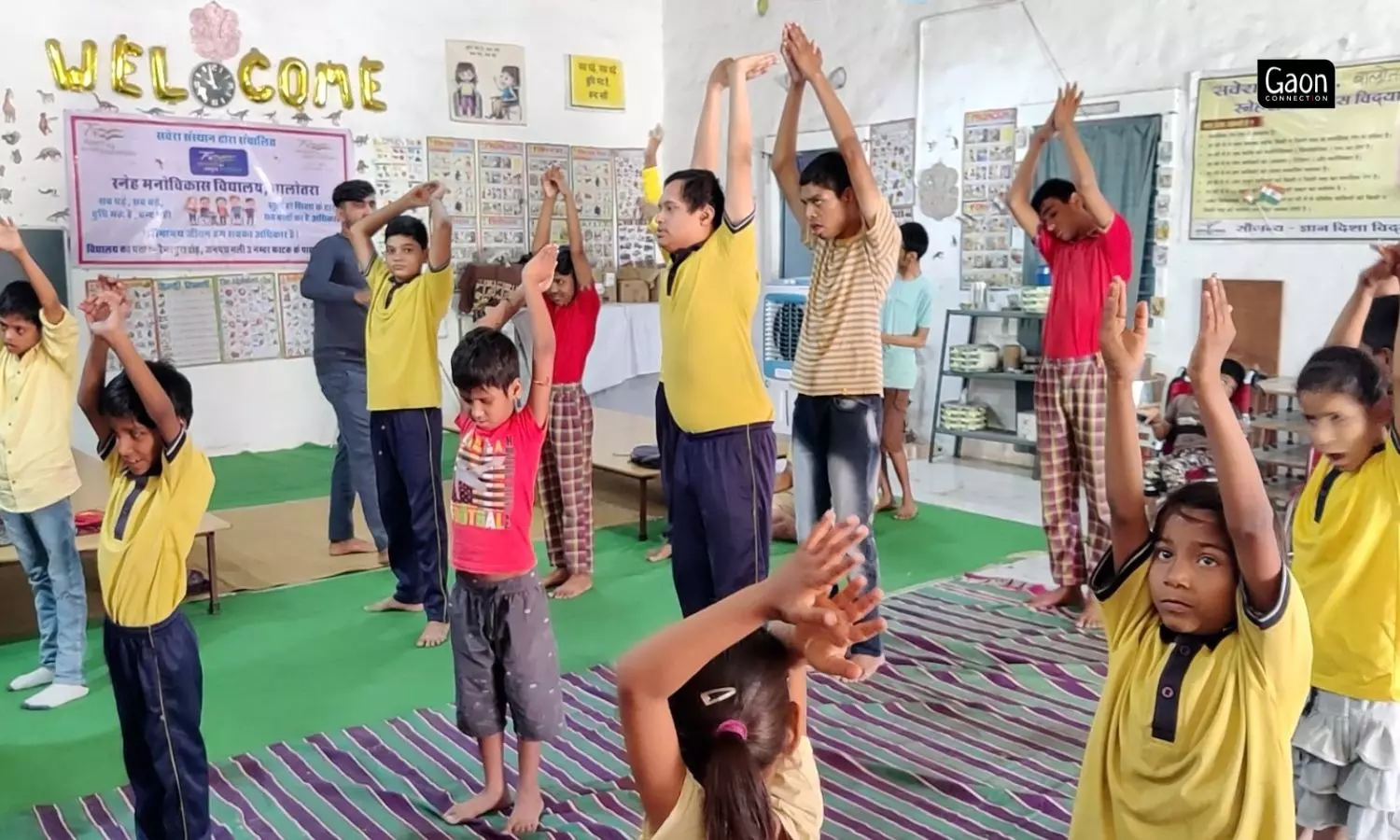Balotra (Barmer), Rajasthan
The hall with plenty of air and light has children doing a bevy of activities. While some work on writing numbers in the small squares in a notebook, others draw and colour. Puzzles, colour pencils, and colourful charts on the wall create a bright happy space.
Musical instruments line one side of the wall, and durries are spread out in readiness for a yoga session for the children. A child undergoes a physiotherapy session there.
Krishna, a young boy in the hall, declares that he wants to become a fauji in the Indian army when he grows up and will vanquish all his enemies. As if on cue, a little girl Mela, breaks into a song. “Phir bhi dil hai Hindustani, phir bhi dil hai Hindustani,” she lisps.
Mela has cognitive disabilities and Krishna is visually impaired. Both study at Sneh Manovikas Vidyalaya, a school for children with special needs that is located in Balotra village in Barmer district in Rajasthan. The large hall is their classroom. The school was set up in 2019, as an offshoot of the Barmer-based non-profit, Savera Sansthan, founded by Satyanarayan Chaudhary in 2002.
Chaudhary has been associated with social work in rural areas through his non-profit for years. He has worked tirelessly in rural Rajasthan spreading awareness about well-being and health.

The institution also provides vocational training to children in order to provide a future for them where they can be self-sufficient
“There are so many hundreds and thousands of children who are less than normal physically or mentally, and there is no organised set up that can help them. Through our school, we are trying to bridge that gap,” Satyanarayan Chaudhary, who is also manager of the school, told Gaon Connection.
“There are people in rural Rajasthan who remain deprived of even basic amenities. In such poverty and struggle, if they have children with disabilities, they can do little about rehabilitating them. They do not even have the bandwidth to think about doing something for the children’s physical and mental well being,” he said.
Bridging the gap
The social worker saw the yawning gap in services related to children with special needs and that was the catalyst that created Sneh Manovikas Vidyalaya. “I conducted a survey and realised that there was nothing for these children. And, that is why I set up the school,” he said.

Sneh Manovikas Vidyalaya, a school for children with special needs that is located in Balotra village in Barmer district in Rajasthan, is catering to children with physical and cognitive disabilities.
“In the early days, I had to go from village to village, telling people about this school and encouraging them to put their children with special needs there,” Chaudhary said. Today, the school has 50 children enrolled in it. Their ages range anything between five years and 20 years.
The establishment has become a haven for children and a beacon of hope for their parents. It combines both education, and treatment for the children, many of whom have cerebral palsy, are visually or hearing impaired, or are in the Autism spectrum.
Also Read: A special educator gives children with intellectual disabilities a sporting chance to win accolades
“The idea was to provide the best possible treatment to children with special needs irrespective of their economic background,” Chaudhary said. The school charges no fees. Children are given free uniforms and are provided free transport to pick them up from home and drop them back. It runs on donations and the largess of industrialists from Balotra that is an industrial zone.
Changing lives
At the school, these children are trained in basic skills and abilities that will help them lead as normal a life as possible. Two teachers and two caretakers other than Chaudhary work with the children.
Roshni Thakur comes here with her daughter, Siddhi everyday and works alongside her. “If you look around, you will see that each child is doing something that is well within his or her capability. It is not like regular schools where each child has to do the same thing whether he is able to or not,” she told Gaon Connection.

The social worker saw the yawning gap in services related to children with special needs and that was the catalyst that created Sneh Manovikas Vidyalaya.
“I have been coming here for four months now, and my daughter has shown considerable improvement,” Thakur said. Siddhi is in the autism spectrum.
For Jitendra, a father of eight-year-old Kalpana, the school has been a saviour. “My daughter is hearing impaired and couldn’t speak, read or write properly. But, after she has come here, she has improved tremendously. Today, Kalpana writes a lot more, communicates a lot better and is showing overall improvement,” he told Gaon Connection.
Also Read: A primary school where lessons are learnt through nukkad natak
“Our children get speech therapy, occupational therapy, physiotherapy as well as sensory integration therapy here,” principal of the school Sunil Prajapati, told Gaon Connection. “Children who are visually impaired are trained in Braille. Those with physical limitations are provided therapy to improve their motor skills,” he added.

At the school, these children are trained in basic skills and abilities that will help them lead as normal a life as possible.
The institution also provides vocational training to children in order to provide a future for them where they can be self-sufficient, he said.
“We want to extend these facilities to children in the rural areas of the district. They can come here and learn skills that will enable them to live independently in the future,” Chaudhary said. In the process, the social worker said that the aim was also to break down prejudice in society about people with disabilities.


















